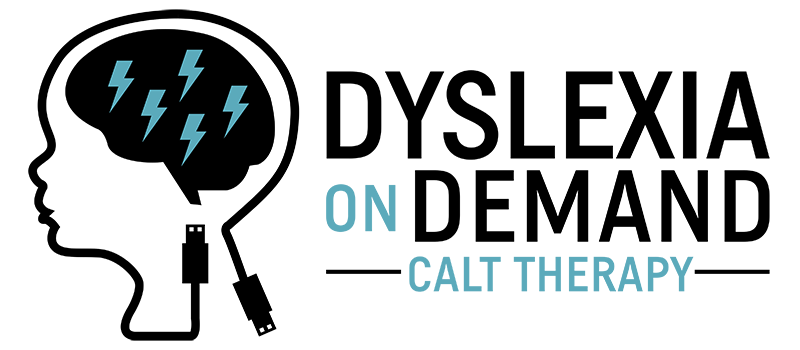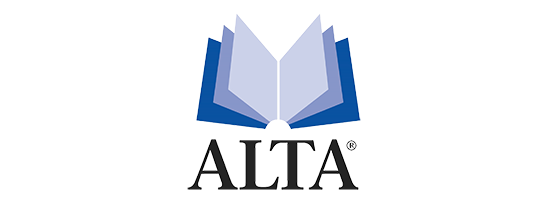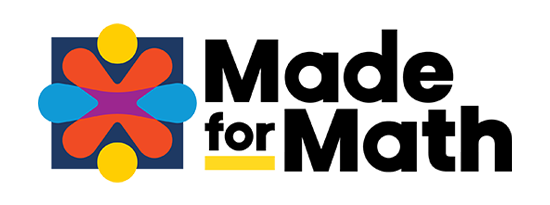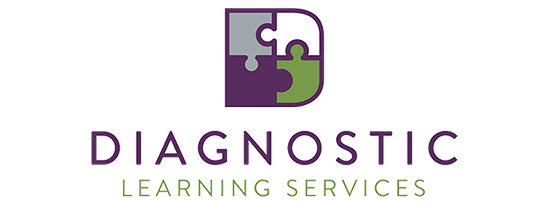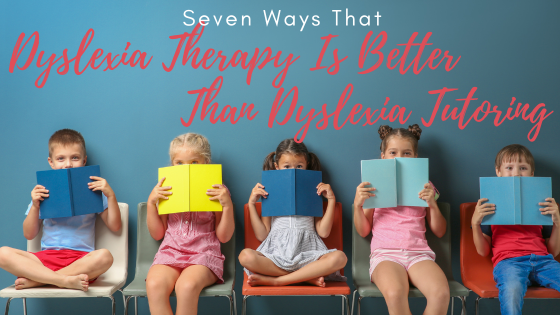
7 Ways Dyslexia Therapy Is Better Than Tutoring
One of the greatest shifts in the world of education might be the way that we see learning differences like dyslexia. People with dyslexia learn and process information differently than typical learners. In recent years, there have been great developments when it comes to successful interventions for students who have dyslexia. When you’re a parent of a dyslexic student, it can be overwhelming to navigate all of the best options for support. While conventional tutoring can help in the short term, dyslexia therapy offers a different kind of approach for different learners. Read on to learn about 7 ways dyslexia therapy is better than tutoring.
1.) Seeing the student as a whole. While tutors can provide some good benefits for students that support specific academic skills, dyslexia therapy presents a more comprehensive solution. Dyslexia therapy emerges as a better form of intervention for students because it is truly a holistic approach. Therapy is more than just academics. It works to address the underlying emotional and cognitive challenges that students with dyslexia may face as well.
2.) An individualized plan for learning. One major benefit of dyslexia therapy is the one-on-one attention your child receives. Dyslexia therapists work to personalize plans that are based on a student’s strengths, weaknesses, and learning style. Tailoring dyslexia therapy sessions to each student helps to avoid a one-size-fits-all approach that sometimes happens in tutoring. At Dyslexia on Demand, programs are geared exclusively for the student’s individual needs.
3.) Going deeper than the surface. When students with dyslexia start with dyslexia therapy, they typically do an assessment that investigates their baseline strengths and weaknesses in the areas related to dyslexia. Dyslexia therapy places a focus on the development of foundational skills such as phonological awareness, auditory processing, and other strategies. Rather than repetitive drills, these strategies help students to experience lasting improvement in reading and other academic areas.
4.) Specially trained therapists are experts in their field. Certified Academic Language Specialists (CALTs) are a special kind of dyslexia therapist. CALTs are qualified to implement therapeutic grade, Orton-Gillingham-based, dyslexia intervention programs. These therapists provide diagnostic, explicit, systematic multisensory structured language. Working with CALTs can help students to build a high degree of accuracy, knowledge, and independence. Dyslexia on Demand uses CALTs for our specialized, online dyslexia therapy sessions.
5.) Therapy provides tools for life. Therapy helps to equip students with skills and strategies that help them with long-term success. Dyslexia therapists can help their students to develop not only with explicit understanding and application of the structure of the English language. Dyslexia therapy isn’t just a band-aid for learning difficulties; it’s an investment in a student’s future that helps to provide skills and confidence by creating new neural pathways.
6.) It’s intensive. During dyslexia therapy, CALTs provide expert, skilled one-on-one or small group interventions. These sessions occur with high frequency over a sustained period of time. This helps to link explicit understanding, repeated practice, and performance to develop accurate and fluent reading with comprehension. In dyslexia therapy sessions, CALTs integrate visual, auditory, and motor processing with an explicit understanding of the structure of the English language; this helps to provide a solid foundation in written language skills.
7.) Data driven, diagnostic, and prescriptive. For dyslexia therapy, CALTs review comprehensive evaluation reports and academic samples. Then, CALTs administer assessments in academic skills for baseline documentation. Student performance helps to inform the diagnostic and prescriptive interventions that are so key to dyslexia therapy. All together, these methods help to create a high level of accuracy, fluency, and understanding for independence in a student’s written language skills.
Consider Dyslexia on Demand. The approach for your student will depend on his or her individual needs and circumstances. At Dyslexia on Demand, our mission is to make dyslexia therapy accessible to students—no matter their geographical location or proximity to qualified therapists. We believe that every child deserves to be successful, regardless of the student’s learning style or academic challenges. In our methods, we use the latest scientific, research-based programs in reading, writing, handwriting, spelling, study skills, and math.
Consider the additional benefits of dyslexia therapy. Dyslexia on Demand’s online dyslexia programs help to change the lives and self-concepts of children who struggle with reading so that they can develop both their confidence and their interest in reading. Our work with students aims to encourage them to become more responsible and independent. In addition, students can learn to become advocates for themselves and for their learning success. This self-advocacy and all these great qualities can lead to more success in and outside of the classroom.
Work with the experts at Dyslexia on Demand. The therapists at Dyslexia on Demand are all Certified Academic Language Therapists. Our specialized online programs incorporate the most up-to-date research. Online dyslexia therapy sessions provide a truly therapeutic environment, which is focused and free of distractions. These experts work as a team with students and parents too, providing strategies and guidance to help students to become academically successful.
Are you ready to learn more about dyslexia therapy? Click here to contact us at Dyslexia on Demand.
